�
English translation copyright © 2014 by Yuval Noah Harari
Published simultaneously in the United Kingdom by Harvill Secker First published in Hebrew in Israel in 2011 by
Cloth edition published 2014
Kinneret, Zmora-Bitan, Dvir
Signal Books is an imprint of McClelland & Stewart, a division of Random House of Canada Limited, a Penguin
Random House Company
All rights reserved. The use of any part of this publication reproduced, transmitted in any form or by any means,
electronic, mechanical, photocopying, recording, or otherwise, or stored in a retrieval system, without the prior
written consent of the publisher – or, in case of photocopying or other reprographic copying, a licence from the
Canadian Copyright Licensing Agency – is an infringement of the copyright law.
Library and Archives Canada Cataloguing in Publication
Harari, Yuval N., author
Sapiens : a brief history of humankind / Yuval Noah Harari.
Includes bibliographical references.
ISBN 978-0-7710-3850-1 (bound).–ISBN 978-0-7710-3852-5 (html)
1. Civilization–History. 2. Human beings–History. I. Title.
CB25.H37 2014 909 C2014-904589-1
C2014-904590-5
Jacket design © Suzanne Dean
Picture research by Caroline Wood
Maps by Neil Gower
McClelland & Stewart,
a division of Random House of Canada Limited,
a Penguin Random House Company
www.randomhouse.ca
v3.1
�
In loving memory of my father, Shlomo Harari
�
Contents
Cover
Title Page
Copyright
Dedication
Timeline of History
Part One The Cognitive Revolution
1 An Animal of No Significance
2 The Tree of Knowledge
3 A Day in the Life of Adam and Eve
4 The Flood
Part Two The Agricultural Revolution
5 History’s Biggest Fraud
6 Building Pyramids
7 Memory Overload
8 There is No Justice in History
Part Three The Unification of Humankind
9 The Arrow of History
10 The Scent of Money
11 Imperial Visions
12 The Law of Religion
13 The Secret of Success
Part Four The Scientific Revolution
14 The Discovery of Ignorance
15 The Marriage of Science and Empire
16 The Capitalist Creed
17 The Wheels of Industry
�
18 A Permanent Revolution
19 And They Lived Happily Ever After
20 The End of Homo Sapiens
Afterword:
The Animal that Became a God
Notes
Acknowledgements
Image credits
�
Timeline of History
Matter and energy appear. Beginning of physics. Atoms and molecules
appear. Beginning of chemistry.
Years
Before
the
Present
13.5
billion
4.5
billion Formation of planet Earth.
3.8
billion Emergence of organisms. Beginning of biology.
6
million Last common grandmother of humans and chimpanzees.
2.5
million Evolution of the genus Homo in Africa. First stone tools.
2
million
500,000 Neanderthals evolve in Europe and the Middle East.
300,000 Daily usage of fire.
200,000 Homo sapiens evolves in East Africa.
70,000 The Cognitive Revolution. Emergence of fictive language.
45,000 Sapiens settle Australia. Extinction of Australian megafauna.
30,000 Extinction of Neanderthals.
Beginning of history. Sapiens spread out of Africa.
Humans spread from Africa to Eurasia. Evolution of different human
species.
�
species.
16,000 Sapiens settle America. Extinction of American megafauna.
13,000 Extinction of Homo floresiensis. Homo sapiens the only surviving human
12,000 The Agricultural Revolution. Domestication of plants and animals.
5,000
4,250
Permanent settlements.
First kingdoms, script and money. Polytheistic religions.
First empire – the Akkadian Empire of Sargon.
Invention of coinage – a universal money.
The Persian Empire – a universal political order ‘for the benefit of all
humans’.
Buddhism in India – a universal truth ‘to liberate all beings from
suffering’.
2,500
2,000 Han Empire in China. Roman Empire in the Mediterranean. Christianity.
1,400
Islam.
The Scientific Revolution. Humankind admits its ignorance and begins to
acquire unprecedented power. Europeans begin to conquer America and
the oceans. The entire planet becomes a single historical arena. The rise
of capitalism.
The Industrial Revolution. Family and community are replaced by state
and market. Massive extinction of plants and animals.
Humans transcend the boundaries of planet Earth. Nuclear weapons
threaten the survival of humankind. Organisms are increasingly shaped
by intelligent design rather than natural selection.
Intelligent design becomes the basic principle of life? Homo sapiens is
replaced by superhumans?
500
200
The
Present
The
Future
�
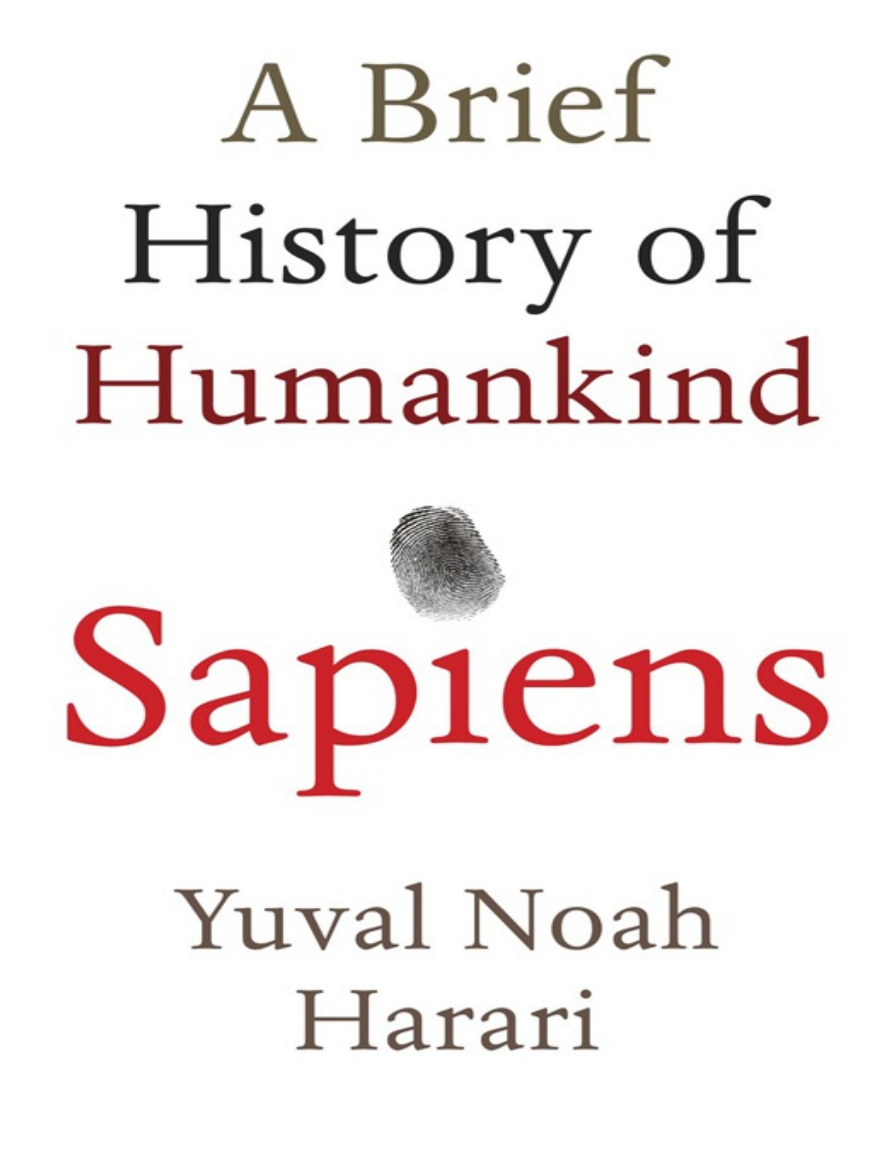
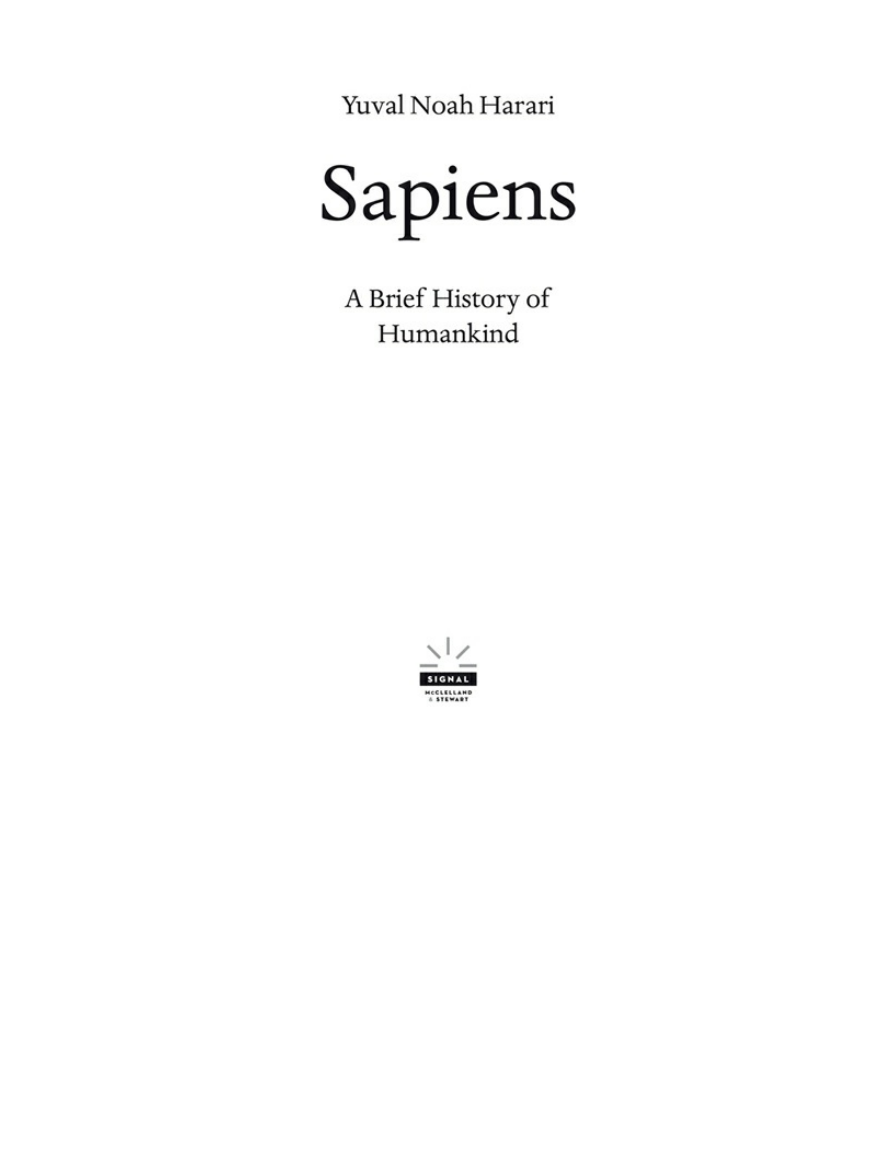
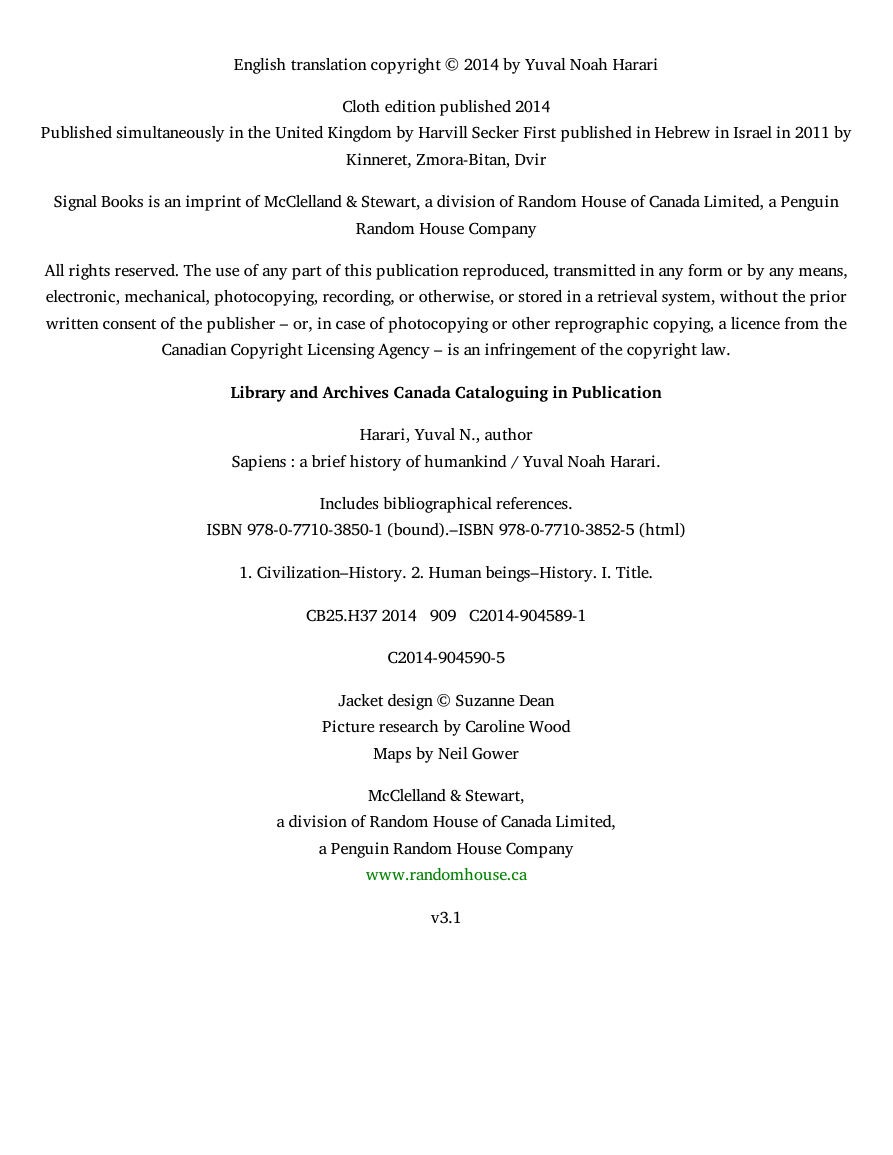
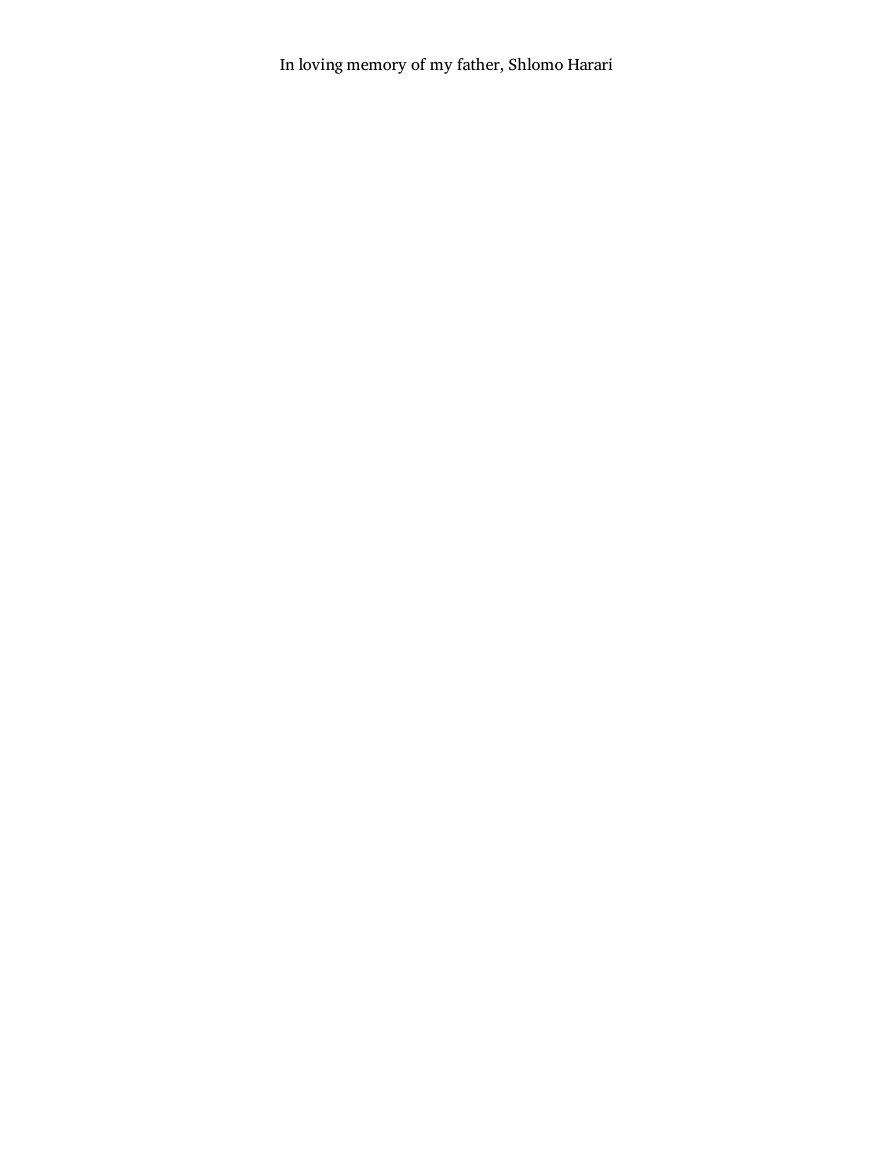

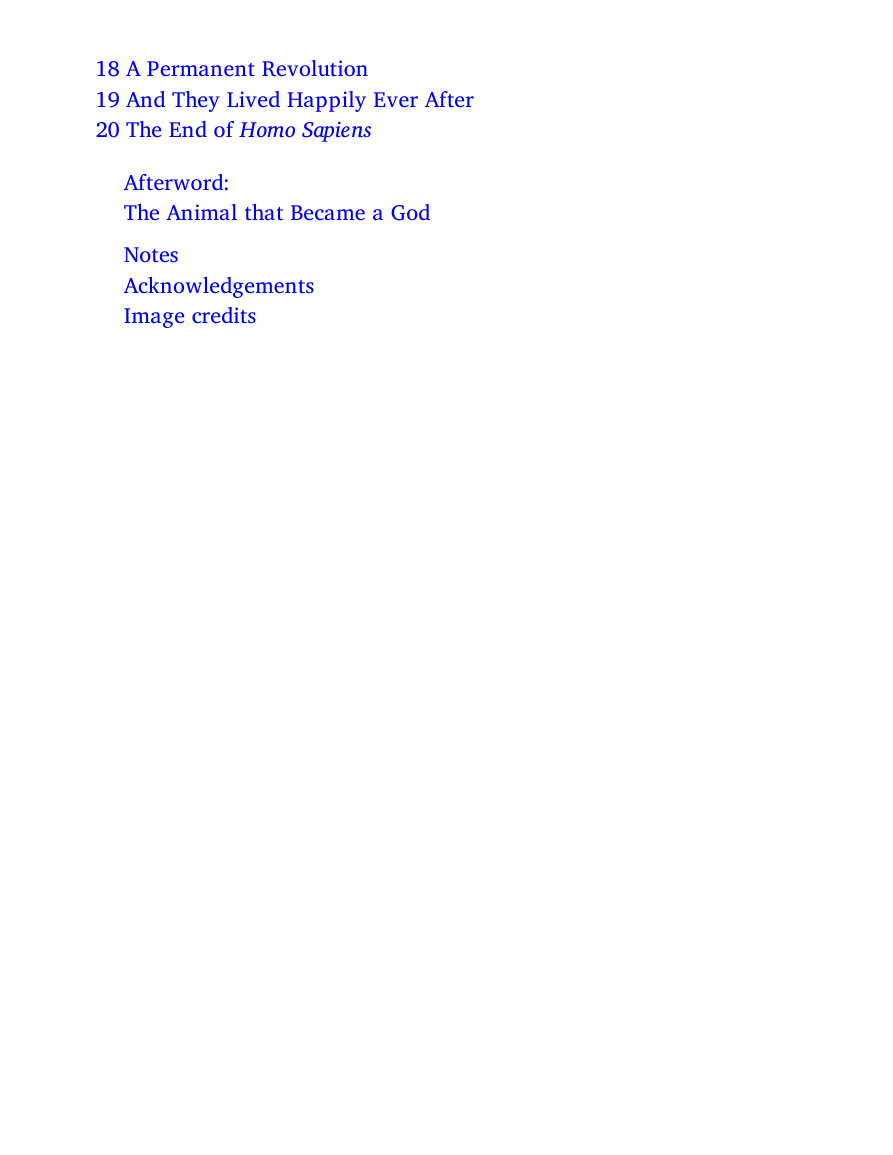
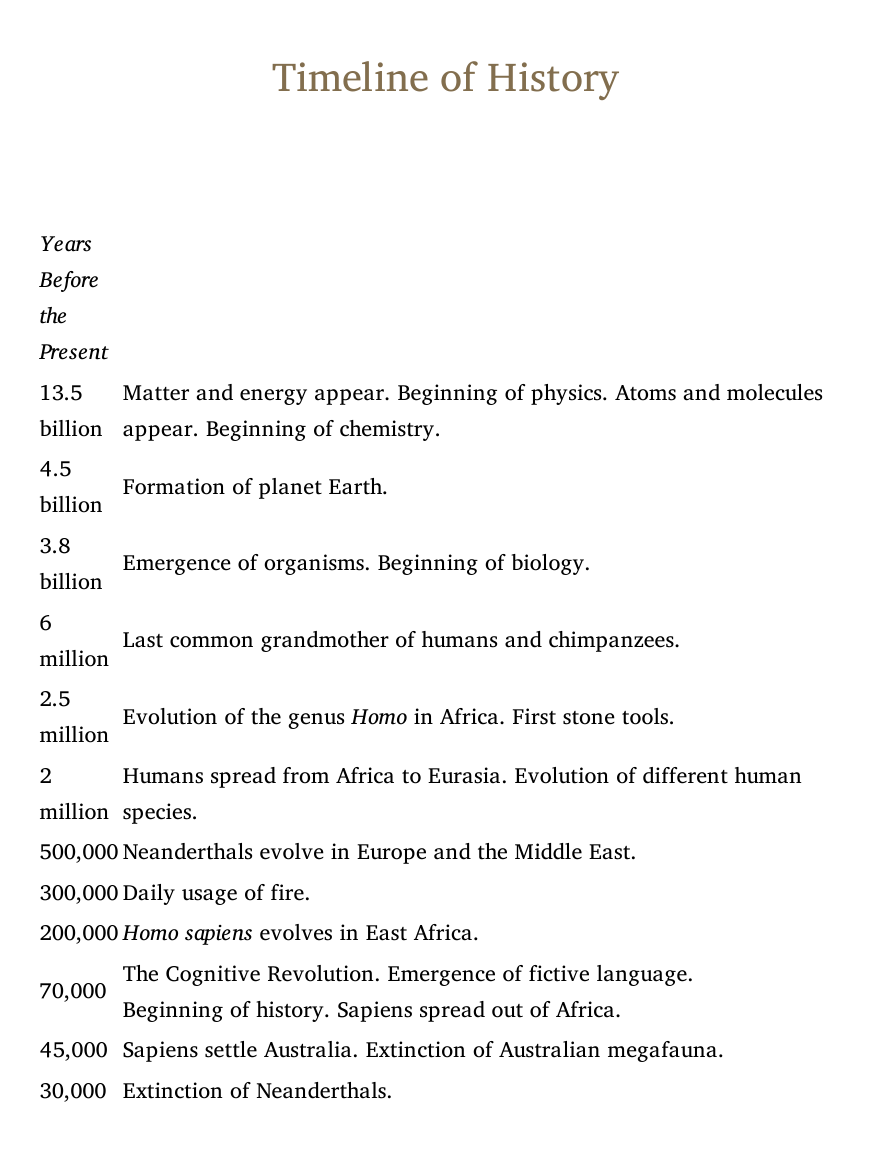
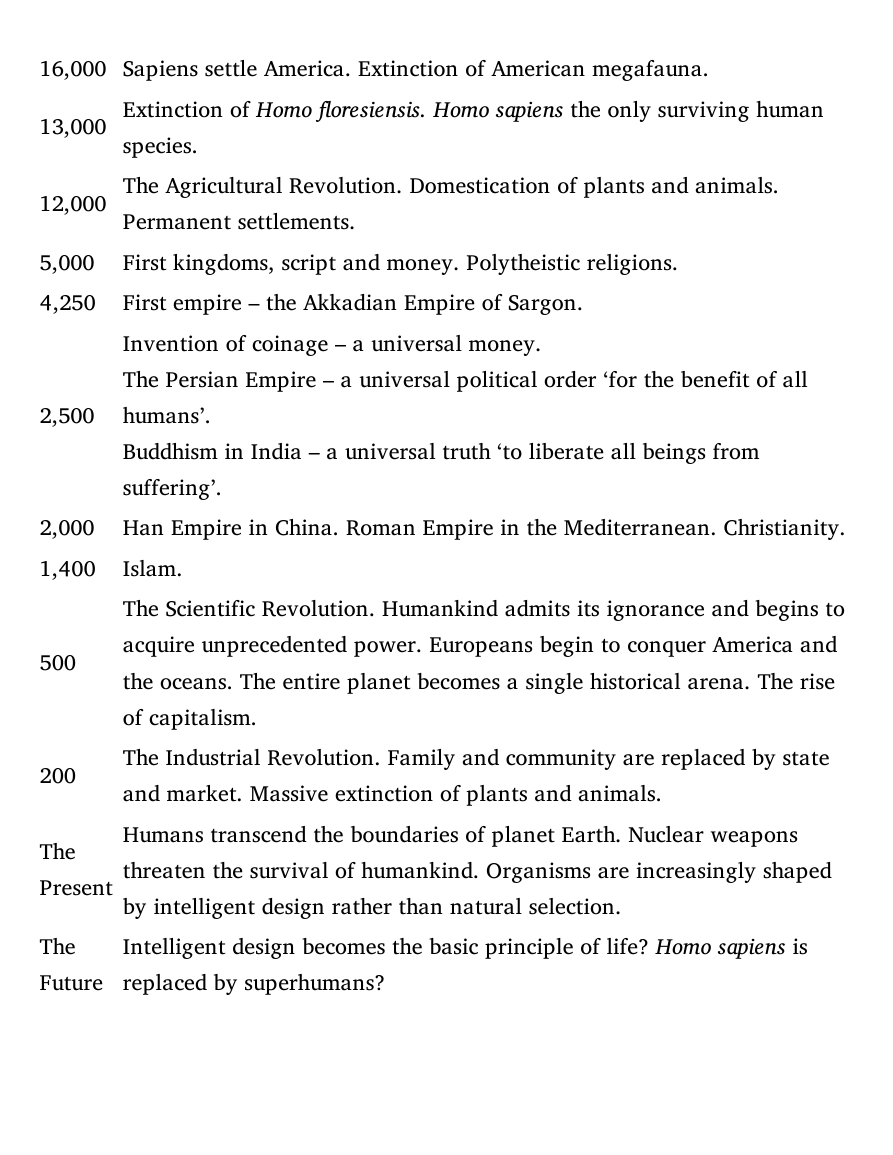








 2023年江西萍乡中考道德与法治真题及答案.doc
2023年江西萍乡中考道德与法治真题及答案.doc 2012年重庆南川中考生物真题及答案.doc
2012年重庆南川中考生物真题及答案.doc 2013年江西师范大学地理学综合及文艺理论基础考研真题.doc
2013年江西师范大学地理学综合及文艺理论基础考研真题.doc 2020年四川甘孜小升初语文真题及答案I卷.doc
2020年四川甘孜小升初语文真题及答案I卷.doc 2020年注册岩土工程师专业基础考试真题及答案.doc
2020年注册岩土工程师专业基础考试真题及答案.doc 2023-2024学年福建省厦门市九年级上学期数学月考试题及答案.doc
2023-2024学年福建省厦门市九年级上学期数学月考试题及答案.doc 2021-2022学年辽宁省沈阳市大东区九年级上学期语文期末试题及答案.doc
2021-2022学年辽宁省沈阳市大东区九年级上学期语文期末试题及答案.doc 2022-2023学年北京东城区初三第一学期物理期末试卷及答案.doc
2022-2023学年北京东城区初三第一学期物理期末试卷及答案.doc 2018上半年江西教师资格初中地理学科知识与教学能力真题及答案.doc
2018上半年江西教师资格初中地理学科知识与教学能力真题及答案.doc 2012年河北国家公务员申论考试真题及答案-省级.doc
2012年河北国家公务员申论考试真题及答案-省级.doc 2020-2021学年江苏省扬州市江都区邵樊片九年级上学期数学第一次质量检测试题及答案.doc
2020-2021学年江苏省扬州市江都区邵樊片九年级上学期数学第一次质量检测试题及答案.doc 2022下半年黑龙江教师资格证中学综合素质真题及答案.doc
2022下半年黑龙江教师资格证中学综合素质真题及答案.doc